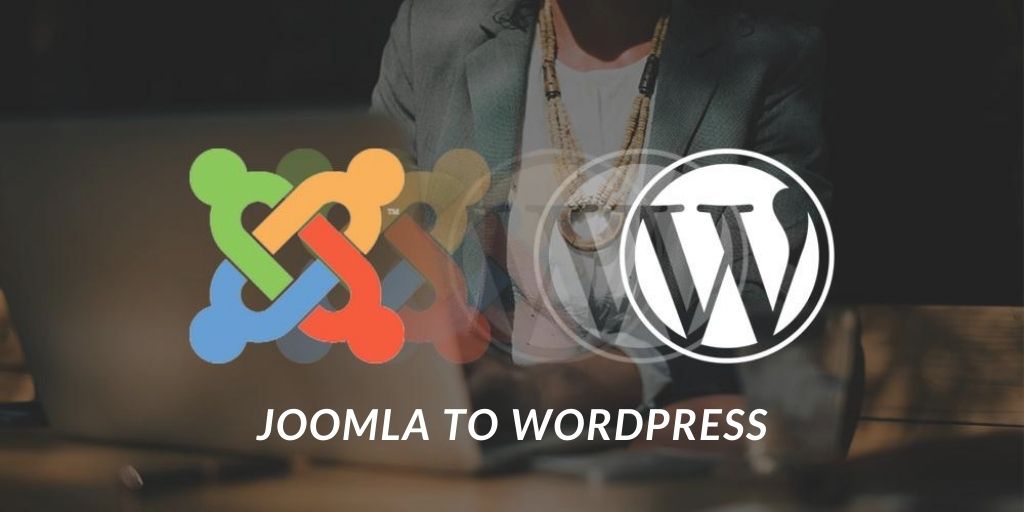Our Blog
Joomla to WordPress Website Migration: How to Make it Easy?

Whenever someone mentions CMS platforms, which are the names which automatically come across your mind? In the majority of the cases, it is either WordPress or Joomla. As of today, both these platforms are the ruling content management systems all over the world. Statistically, together they make up about 65 percent of the CMS market.
Talking about the CMS platforms, the need to convert Joomla to WordPress and vice versa arises when you feel that your CMS is not meeting the requirements in the way it should. If you don’t already own a website and are planning to set up one, then your options are open, and you can pick any one of them. However, there is no objective answer to the question of which one of the platforms is better. Most of the WordPress web development companies agree that they meet many customers who come with a conversion job. In fact, after the release of WordPress 3 in 2010, WordPress’s popularity has far outgrown that of Joomla’s.
Why has WordPress become so popular?
When asked why they opted to convert Joomla to WordPress, most website owners gave a similar reason for doing so, i.e., WordPress ease of use, which beats all other platforms on the parameter. Everything from primary setup to managing content is astonishingly simple, even for beginners. It is not so that Joomla is complicated, but it’s not as easy to learn as WordPress.
WordPress is the only CMS platform that does such a remarkable job with the SEO, and its vast community ensures that the users are flooded with hundreds of themes and extensions. Also, WordPress is quite autonomous from the server environment.
These are only the primary reasons why people opt to convert Joomla to WordPress, and now we will discuss how you can perform the task in a simple way.
Two approaches to switch to WordPress from Joomla
The traditional way to migrate your CMS platform is by copying and pasting the entire content. According to us, this approach is quite tedious and not recommended for large websites and blogs. It is another thing if you hire a WordPress web development company to do the same, but that will also involve time as well as money.
Those familiar with a bit of coding and know some technicalities of the CMS can do the export/ import by using the plugins or fetching the data from the SQL database using a custom script. Please note that you don’t need to be an expert in coding for doing it, as a basic programming knowledge will fulfill the task.
To prepare for the migration process, it is essential to have both Joomla and WordPress sites available online. You must have the FTP access details of both these sites ready, as they are required to establish the connection for the exchange of data.
A new migration tool is gaining immense popularity nowadays, which is CMS2CMS web service. As the name suggests, it does a great job while importing data from one CMS platform to another, and the best thing about it is that it’s quite simple to use.
There’s no denying in the fact that automated WordPress migration is better than the traditional approach. Some of the reasons which support the argument are:
- Automation is the fastest way to change your CMS platform, as it takes only a few minutes for the basic websites, and about a couple of hours for the larger ones.
- The setup time is five minutes, even for non-technical users.
- No software installation is required as the migration is done online.
- You don’t need to take your website down during the conversion process, and the Joomla website is live all the time.
Following are the types of content that you can transfer using the CMS2CMS plugin:
- Textual content, i.e., all pages and posts
- Categories
- Users with all their roles and details
- Images
- Comments of the website audience
- Tags
- Internal links
You also get the option to make your URL SEO friendly on the new platforms, and you don’t even lose the relationship between the content pieces on the new WordPress based site.
Conclusion
Whether you are setting up a new website or exporting an old one to a new platform, it is essential to compare your requirements and then take the decision regarding the choice of platform. In the majority of the cases, you will select the WordPress because of the reasons we mentioned in this article. Unlike the earlier days, it has become quite easy to migrate on your own, and all you need to do is refer to a good tutorial, and if stuck somewhere, the YouTube videos are always there. However, if you have a large website and you think that you should hire a professional to do the job, then there’s nothing wrong about it!